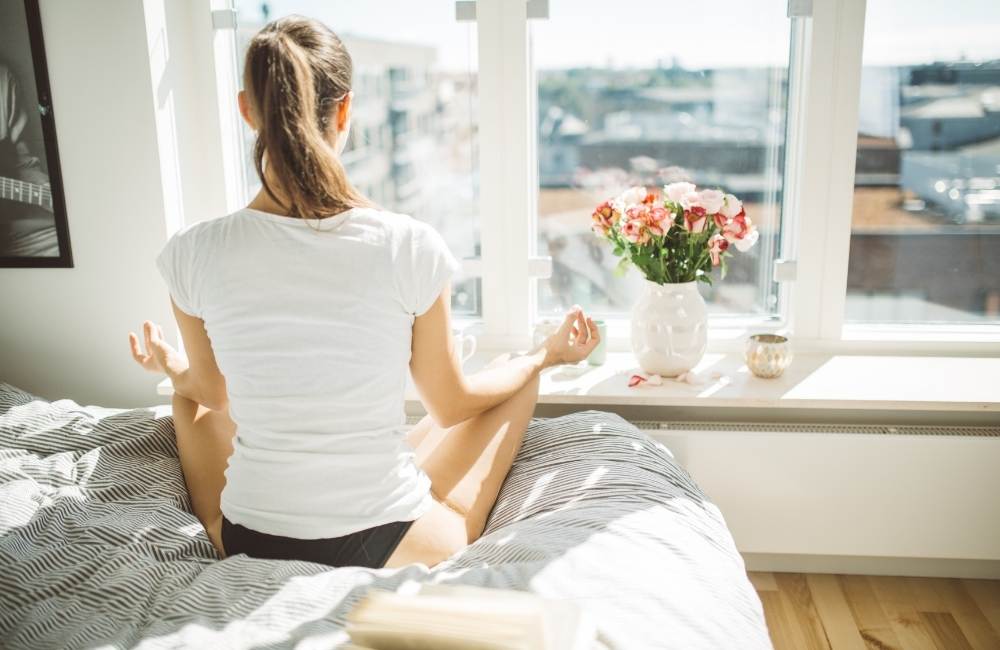With new technology, social media, and short lives, we try to be a part of everything we want and end up feeling disconnected from life and its other aspects.
Sometimes we spend hours and hours scrolling through meaningless social media videos or read people putting their pointless arguments – which adds no value to our health and life.
While it is easy to get associated with endless negative loops, it is essential to connect with our minds and body and have a healthy lifestyle.
Although some of our daily lives can be pretty hectic with work and responsibilities, we can still create a mindful routine with a few mindfulness tips.

Here are a few activities you can include to develop mindfulness in your daily routine.
Table of Contents
Cleaning
Household chores are something we all do – doing dishes, cleaning the kitchen, folding laundry. But most of us rush it, or sometimes we do it out of habit, without being conscious while doing it.
To include mindfulness in your cleaning routine, pay attention to what your hands are doing. If you are doing the dishes, feel the water’s temperature or the dishes’ textures, or the motion you are using to rub the dishes. Similarly, you can feel the texture of the clothing material if you are folding clothes.
Eating
Meals are essential parts of our daily lives or food in general. Therefore, it can be another great way to develop mindfulness into your daily routine. Being mindful while eating can help you be conscious of what substance you are putting in your body.
To incorporate mindfulness into your eating routine, you can notice the texture, smell, and taste of the food. Concentrating while eating can give you satisfaction even when you bite a raisin. Take slow bites and chew slowly.
Walking
Most people often take a walk in the garden to get rid of stress or some other to contemplate. If you don’t walk every day, you might still include mindfulness while walking to your office room or even when walking to different school classes. We all walk some steps every day.
Next time you’re walking or taking a walk, notice your legs and movement. Take notice of how your foot feels against the ground. Feel how the whole body is getting displaced with small steps, which can help you improve mindfulness.
Showering
Showering is an interesting part of our lives. Some dislike the idea of showering and only do it to stay clean; some others find it relaxing. The latter ones are the ones who know mindful showering. Showering is like mindfulness therapy.
While under the shower, you can feel the water. But if you pay attention to it, you can feel the temperature against your skin. Be mindful while you apply your soap or shower gel. Notice the sounds the water makes when it hits the tiles and floor of the bathroom.
Waiting
Either it is about waiting in a bank queue or waiting for someone to arrive at your place, we all are pretty annoyed about waiting. At the same time, we can indeed expect punctuality from other people, but there’s nothing we can do other than wait. But what we can more take this opportunity to increase mindfulness.
Notice you’re reaction when you find out a long line of the queue. How does your body react? You might be feeling annoyed or angry, and you might feel your face warming up to anger. Your heart will start beating fast, and many other reactions go on your body that requires attention.
Listening
Listening is necessary yet overlooked skill that many of us need to have but don’t have. Imagine having a friend to whom you can share all your desires and problems, and they absorb it as if it were nothing. Imagine the same, but this time you’re that friend who gives people a safe space to talk about their life problems.
Listening is one of the significant contributions to create a deep understanding and meaningful bonds. Pay attention to what they are saying, their body language, their voice, and their tones. Sometimes, they might not finish a sentence or voice their opinions, but their body language greatly give out.
How to be more mindful with growing time?
Mindfulness sounds complicated, but it’s actually not. Mindfulness is a practice and not a short-term solution for everyday problems and stress. It is a lifestyle that you need to adapt to that can help you in the long run.
In a nutshell, it is not a luxury but a practice that gradually trains your brain to improve focus. It supports your everyday thoughts, activities, and perception to be more balanced. If you are interested in taking it next level with mindfulness therapy, check out BetterHelp.com.